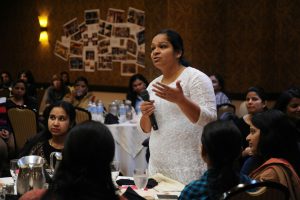Embarking on a university journey in Canada, a land of diverse cultures and perspectives, presents a unique opportunity to embrace and master the art of inclusive communication. Inclusive communication goes beyond mere dialogue; it’s about understanding and valuing the rich tapestry of experiences that every student brings to the table. This blog aims to guide you through mastering this crucial skill, ensuring your university years are not just a phase of academic growth but also a time of profound personal development in how you connect with the world around you.
The Essence of Inclusive Communication
Inclusive communication is the practice of engaging with others in a way that respects and acknowledges all aspects of individual identity, including culture, race, gender, and ability. It’s about creating an environment where everyone feels valued, heard, and empowered to share their perspectives. “In our diversity lies our strength,” as the saying goes, highlighting the power of inclusive communication in fostering a vibrant and cohesive university community. It paves the way for more effective learning, as students feel safe and valued, leading to open, honest, and more meaningful conversations and exchanges.
Benefits of Inclusive Communication

The impact of inclusive communication in a university setting extends far beyond the classroom walls. It nurtures a culture of respect and understanding, leading to a more harmonious and supportive campus environment. Studies show that when educational institutions prioritize inclusive communication, there is a marked increase in student retention and satisfaction. For instance, a Canadian university report revealed that “students who felt included and respected in academic settings were 20% more likely to complete their degree programs.” Such statistics underscore the transformative power of inclusive communication in fostering a sense of belonging and success among students.
Strategies for Mastering Inclusive Communication
Active Listening: Focus on truly understanding the speaker’s message, asking clarifying questions, and reflecting back on what you have heard to ensure comprehension.
Cultural Sensitivity: Educate yourself about different cultures and be mindful of cultural nuances in communication to avoid misunderstandings and build stronger relationships.
Empathy and Open-mindedness: Approach conversations with empathy, striving to see things from the other person’s perspective and remain open to learning from their experiences.
Feedback and Self-Reflection: Seek feedback on your communication style and reflect on your interactions to identify areas for improvement.
By adopting these strategies, you can become a more effective and inclusive communicator, contributing positively to your university community and beyond.
Conclusion and Encouragement
Mastering inclusive communication is an essential skill that will serve you well throughout your university journey and into your future career. It’s about more than just talking; it’s about connecting, understanding, and building relationships that transcend cultural and societal barriers. As you step into this exciting phase of your life, remember that your voice matters and your ability to communicate inclusively can make a significant difference in your world and the world of those around you.

